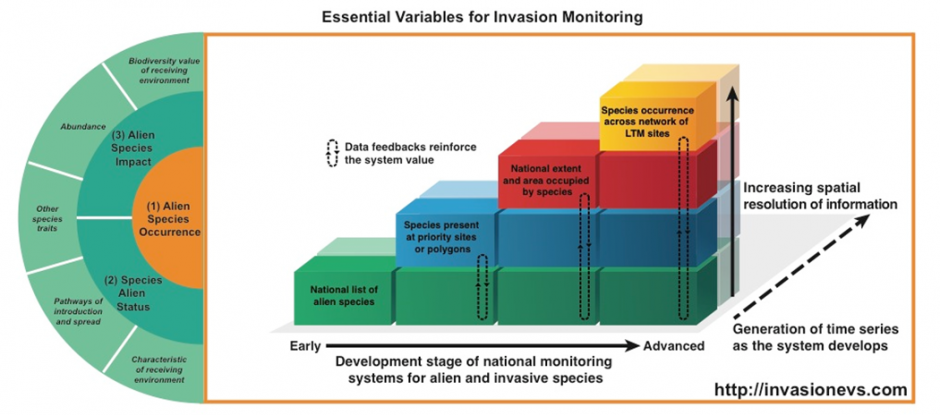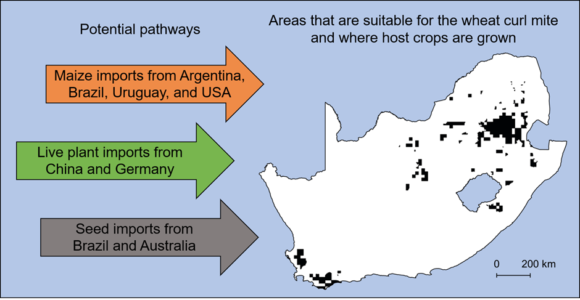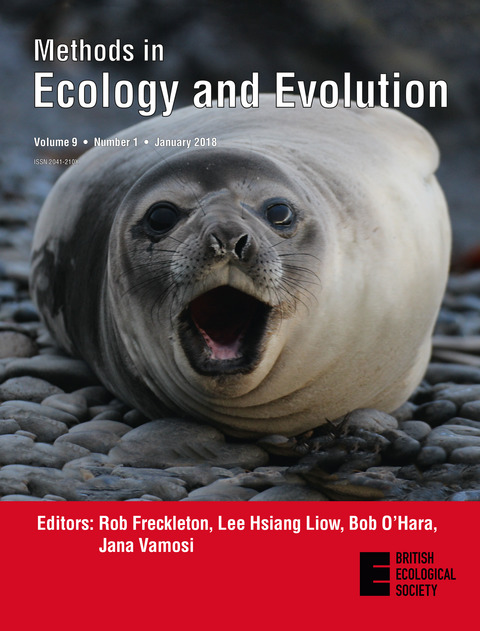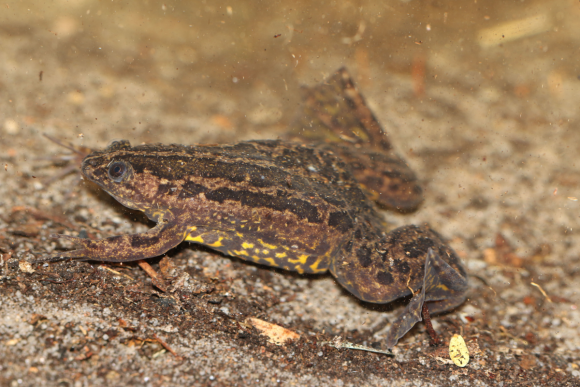21 October 2016 | By Sabrina Kumschick
What variables should be monitored to aid the management of invasive species? Applying the concept of essential biodiversity variables, a new study identified three essential variables for invasion monitoring; alien species occurrence, status and impact. This minimum information set can then be delivered by joint, complementary contributions from countries and global community initiatives. In a recent article published in Biological Conservation, post-doctoral researcher Guillaume Latombe and C·I·B associate Melodie A. McGeoch brought together 22 international researchers to present their vision for implementing and harmonising the global monitoring of biological invasions. This work is the result of a workshop including all co-authors (comprising C·I·B core team members Cang Hui, Sabrina Kumschick and John Wilson, and C·I·B associates Tim Blackburn and Petr Pyšek) hosted by the Group on Earth Observations Biodiversity Observation Network (GEO BON) at the German Centre for Integrative Biodiversity Research (iDiv) in Leipzig in March 2015.
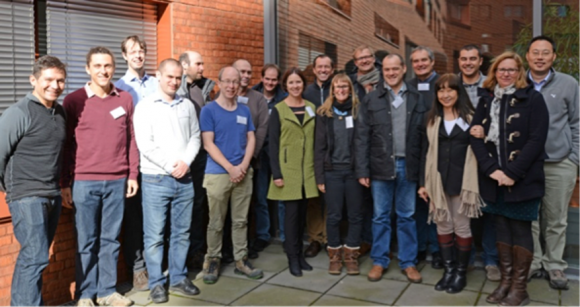
Current information with complete global coverage is central to managing biological invasions. International and cross-border policy and co-operation is particularly essential; trans-boundary and trading partnership risks cannot be evaluated without adequate information on alien species distributions. However, systematic monitoring of alien species is lacking, and a standardized approach for tracking biological invasion has until now not been developed. In this article, the authors show how the architecture for tracking biological invasions is now within reach and is provided by a minimum information set of essential variables, global collaboration on data sharing and infrastructure, and staged, strategic contributions by countries. With the approach developed in this study, country contributions are made feasible using a modular approach where all countries are able to participate and strategically build their contributions over time. Current developments in best-practice data infrastructure and biodiversity informatics, including for alien species, are ready to support the system.
Recent progress that makes this vision realizable includes the current focus on identifying essential biodiversity metrics. The recent development, and support by the IUCN, of a standard scheme for quantifying invasive species impacts form a key part of the approach. Finally, significant developments in digital infrastructure and delivery of information on alien species are well advanced in their capacity to support a global observation system for alien species. The approach provides clear direction for national and international efforts to collect the data most essential to enable actions to reduce the negative consequences of biological invasions. It is also flexible enough to accommodate data with a range of precision and accuracy for multiple taxa, ecosystems and countries.
“The vision we outline will deliver wide-ranging benefits to countries and international efforts to slow the rate of biological invasions and minimize their environmental impacts”, says Prof. McGeoch. “These benefits will accrue from the step change in global coverage and current information on alien species, particularly those with the most severe impacts. The system further provides a much-needed platform for improving the performance of indicators of alien species prevalence and impact, and the delivery of reliable information for policy, such as for the Convention on Biological Diversity’s Strategic Plan for Biodiversity, 2011-2020.”
For more information, contact Sabrina Kumschick sabrinakumschick@sun.ac.za
